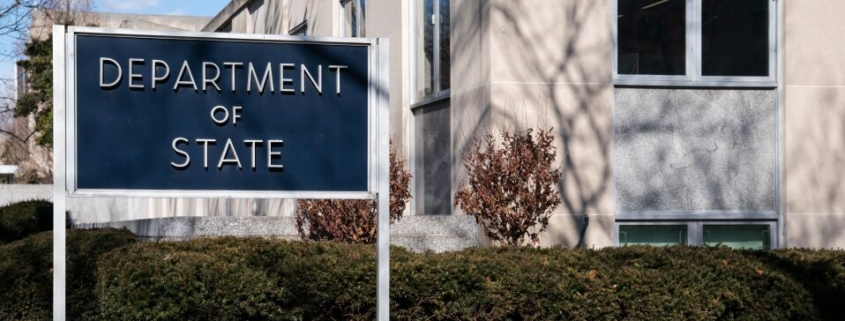State’s Cyber Diplomacy Bureau Props Up Anti-Hacking Alliances
The State Department’s new bureau focused on cyberspace is expected to elevate the issue’s place in international affairs as the U.S. looks to join forces with other nations to stem a rising tide of hacks.
The Bureau of Cyberspace and Digital Policy will likely play a role in the White House’s enlistment of other countries to counter increasingly common and costly ransomware attacks, former government officials say. Cyber diplomats also could add to U.S. efforts to press Russia to take responsibility for ransomware groups that continue their attacks despite sanctions imposed by the Biden administration, they said.
Another item on the horizon is upcoming United Nations talks toward a cybercrime treaty. The talks are set to raise thorny issues for defining and exchanging information on allegedly criminal behavior online, said Duncan Hollis, a former State Department official who’s now a professor at Temple Law School.
“Those negotiations will require a pretty savvy diplomat,” Hollis said. He added that the talks are likely to draw a lot of attention as the U.S. and its allies confront countries like Russia and China that so far have objected to international cyber agreements.
A Senate-confirmed ambassador will lead the State Department bureau, with a purview over cybersecurity as well as economic and human rights issues related to the internet, according to an Oct. 25 briefing from agency spokesman Ned Price. Its structure and scope represent a step up from past iterations of the department’s work on cyber.
Beyond Security
The State Department installed its first cyber diplomat during the Obama administration. Under the Trump administration, the department started a cyber bureau narrowly focused on security.
The latest bureau’s aim is to prevent cyberattacks while protecting digital freedoms such as free speech online, U.S. Secretary of State Antony Blinken said in Oct. 27 remarks to the Foreign Service Institute. The bureau’s work also is planned to include other digital policy issues like promoting trusted telecommunications systems, according to a State Department spokesperson.
It’s significant that the planned bureau’s scope is broader than just cybersecurity,…


